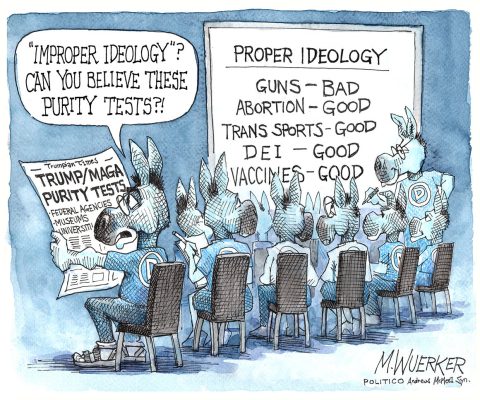
Hermosa Beach residents went to the polls March 3 to decide on Measure O, the ballot measure that would have lifted the city’s ban on oil extraction. Voters emphatically chose to maintain the ban, with extraction opponents outnumbering supporters nearly four to one. Turnout for the special election approached 60 percent of registered voters, a figure rarely achieved even during presidential elections.
The run-up to the election saw a local land-use question turn into a referendum on small-town identity. So even though outcome of the vote was decisive, the issue did not disappear. Rather, it continued to influence news in Hermosa throughout the year, spawning a pair of legal entanglements for the city and setting the tone for November’s municipal elections.
Long tail
Oil’s continuing influence makes more sense in the context of Hermosa’s lengthy history with crude.
The city had an oil drilling ban on the books until 1985, when voters decided, 60 percent to 40 percent, to lift the ban. A year later, the city entered into an agreement with MacPherson Oil, under which the company would be allowed to drill for oil in Hermosa.
But the consensus didn’t last. In 1995, voters instituted another ban on drilling within the city limits. MacPherson, prohibited from drilling for oil to which they were contractually entitled, sued.
The oil company sought to recover the amount they would have gained had the operation proceeded, which the company argued totalled some $750 million. Such a judgment would have crippled Hermosa financially. (The city’s entire budget for 2014-2015 was $35 million.) The city spent the better part of the next two decades with a massive lawsuit looming over its head until March 2012, when the city, MacPherson and E & B Natural Resources entered into an agreement. The agreement provided that MacPherson would get $30 million in exchange for abandoning its claim on mineral resources in Hermosa. E & B would pay $12.5 million of this money, with Hermosa responsible for the remaining $17.5 million.
E & B structured the agreement with the understanding that the city hold an election in which voters would be asked to lift the ban on oil extraction. With the election looming, the early months of 2015 were marked by a back and forth over financial and environmental effects of the project. Environmental Impact Reports and Health Impact Assessments landed with loud thuds when released, and despite their hefty page counts people actually read enough of them to vigorously dispute the findings.
But it wasn’t all wonkish debate. Oil struck an emotional chord with the city, and people painted, sang and surfed to express opposition as well. An apartment complex on Hermosa Avenue and 16th Street became a scene of public art when people scrawled messages opposing Measure O; the building remains covered in slogans today.
Victory party
The emotional tenor surrounding the project continued through an election night party at the Standing Room downtown, where revelers gathered to celebrate the defeat of Measure O. Among those present was anti-oil activist and noted Hermosa photographer Chris Miller.
During the party, a Hermosa Beach police officer writing a ticket across the street claimed to have recognized Miller among a crowd of people shouting obscenities. Police had supported Measure O as a way improve finances for the department, which had gone years without a pay raise.
The officer formalized his observations in a report eight days later and, on March 23, Police Chief Sharon Papa sent a letter to Ken Hartley, then the president of the Hermosa Beach Chamber of Commerce and Visitor’s Bureau. Papa’s letter recounted the officer’s observations, and Miller was subsequently removed her position on the Chamber board.
The removal prompted an outcry, and the city ordered an independent investigation of the election-night incident and the police department’s response. That investigation ultimately found insufficient evidence to link others in the crowd at the Standing Room to any obscenities, but stood by the original conclusions about Miller.
Having lost her seat on the chamber and suffered what she described as “extreme humiliation,” in October Miller filed a lawsuit naming the city, Hartley, Chief Papa and others. The suit alleges a number of different claims, including conspiracy to violate Miller’s civil rights, and seeks at least $475,000.
As the year comes to a close, the city council continues to discuss the lawsuit in closed session.

Interest owed
At the time of the March 2012 agreement, Hermosa did not have $17.5 million, its share of the $30 million MacPherson received to discharge its claim on the city’s mineral resources, immediately available. E & B fronted the money, and with residents having rejected Measure O, Hermosa had to repay the debt.
The March agreement stated that the city had to repay the loan under “commercially reasonable terms,” agreed to mean five percent interest on the underlying amount. The agreement was silent, however, on the date from which interest was to be computed.
The city interpreted the agreement so that interest began to accrue from the date the election results for Measure O were certified. This would total $247,151.25 in interest, which the city has already provided.
In a series of legal exchanges in October, E & B demanded more, arguing that interest ought to be calculated from the date the agreement was signed in March 2012. At five percent interest and compounded annually, this would total more than $3.4 million.
Hermosa’s exposure in the lawsuit could be even higher. A letter to City Attorney Michael Jenkins said that “de-facto opposition by the [City] Council to the ballot initiative” constituted bad faith on the part of the city, and could form the basis of punitive damages.
Oil opponents counter that the oil company was responsible for much of the delay between the signing of the agreement and the date of the lawsuit. City officials initially wanted to hold the election in November 2014, extending the period for the accrual of interest, but E&B sought to push it back as far as June 2015.
As of the end of the year, city officials maintain that they have paid all interest owed under the agreement, and continue to discuss the litigation in closed session.
The vote goes on
Hermosa voters returned to the polls on Nov. 3. Turnout for the November election fell substantially, with some 3500 fewer ballots than were cast in the March election. Nonetheless, even in the regularly scheduled, the issue of oil continued to resonate.
In filling two slots on the City Council, residents selected Justin Massey and Jeff Duclos, two candidates who were vocal opponents of Measure O during that campaign. They benefitted, in turn, from endorsements for Keep Hermosa Hermosa, the political organization the evolved out of the campaign against oil.
The results revealed the way in which oil had reshaped municipal politics in Hermosa, with a coalition organized around environmental issues seeming likely to hold power for the foreseeable future.
“Stopping something is not progress,” resident Robert Fortunato said at an election night party for Duclos and Massey. “Getting people doing something generative is what makes a difference over time. This is really the next chapter for Hermosa.”








